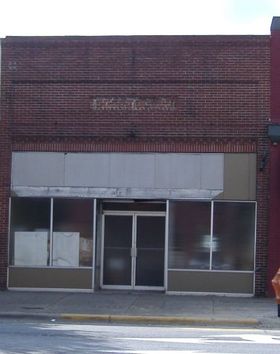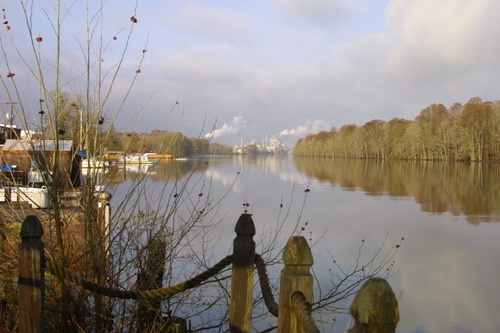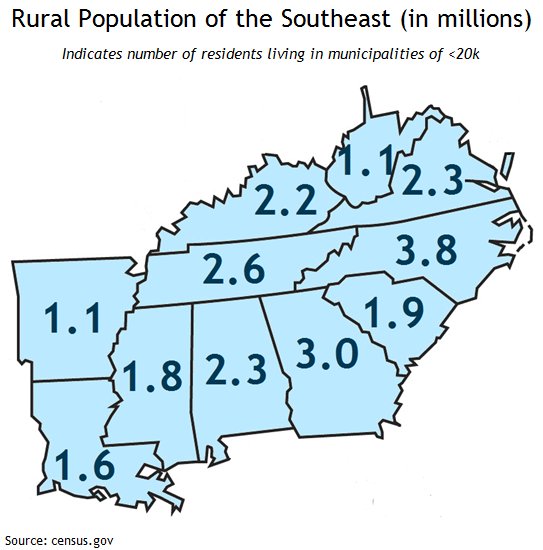I am fascinated by crowdfunding campaigns, especially those centered around local needs. When done well, they represent a direct route to creating real, tangible good that was previously impossible. It's probably not smart to wholly depend on them for full funding, but the power of a platform like IndieGoGo or Kickstarter to drastically affect the flow of capital is undeniable.
I grow even more hopeful when I consider the potential impact of precise crowdfunding on a town like Kinston, North Carolina. Kinston is 25 minutes from where I live and the hometown of a close friend and his family. It is home to a little under 22,000 people. Its median income is $26,000; and 32% of its children live below the poverty line. There's some good work happening there already in the community and business development spaces, but it could definitely use a shot in the arm.
The question is the form that shot in the arm should take. Considering this question without falling into the traditional trap that it would take hundreds of thousands of dollars to make a huge dent is tough, but absolutely necessary.
This brings me to 123 S. Queen St.
The question is the form that shot in the arm should take. Considering this question without falling into the traditional trap that it would take hundreds of thousands of dollars to make a huge dent is tough, but absolutely necessary.
This brings me to 123 S. Queen St.
An old retail space with nearly 2300 sq. ft., 123 S. Queen St. is listed as having a tax value of $9,600. Though there is always a difference between tax value (assessed by local government) and appraised value (arrived at by local real estate appraisers), it's unlikely that this building would sell for more than $25,000 (or that its owner would object to that payment). Let's tack on $25,000 for materials and specialized upgrades/renovations (and hundreds of volunteer hours) to make it a clean $50,000 (a very generous estimate).
Now, let's pivot and imagine what could be. With $50,000, this could become...
Whatever a particular community judges as best for itself isn't as important so much as establishing that a project styled in this manner is not only entirely reasonable, it is incredibly necessary. Catalyzing growth through crowdfunding would have a marginally greater impact in Kinston than almost anywhere else in the country. The next step down the road - establishing a roadmap or model for other small towns to pursue a similar path themselves - wouldn't be that tough, either. It's not crazy to imagine that projects and growth like this could become the norm, spiderwebbing into hundreds of directions. Together, we know thousands of people who know thousands of people who care about places like Kinston. If they have the internet and $20, they can help.
And let's not fool ourselves into thinking that this isn't a choice. It is. If we don't reconsider the value of the rural South, we will suffocate its history, ignore its value, and willfully cement the increasing urban/rural class divides. That's not a future I care to be a part of, and I have to wonder if places like 123 S. Queen St. are the key to drastically altering the landscape of the rural Southeast.
A group down payment of $50,000 could help destroy a mindset about where growth can and should happen, and who should have a seat at the table.
[Find Greenfield Southeast on Facebook!]
=================================================================
Now, let's pivot and imagine what could be. With $50,000, this could become...
- a co-working space where local non-profits and small business could collaborate on local and regional initiatives,
- a children's theater and arts space,
- a start-up incubator for companies looking to better serve a rural market, or
- countless other spaces that could multiply Kinston's present value (economic and beyond)
Whatever a particular community judges as best for itself isn't as important so much as establishing that a project styled in this manner is not only entirely reasonable, it is incredibly necessary. Catalyzing growth through crowdfunding would have a marginally greater impact in Kinston than almost anywhere else in the country. The next step down the road - establishing a roadmap or model for other small towns to pursue a similar path themselves - wouldn't be that tough, either. It's not crazy to imagine that projects and growth like this could become the norm, spiderwebbing into hundreds of directions. Together, we know thousands of people who know thousands of people who care about places like Kinston. If they have the internet and $20, they can help.
And let's not fool ourselves into thinking that this isn't a choice. It is. If we don't reconsider the value of the rural South, we will suffocate its history, ignore its value, and willfully cement the increasing urban/rural class divides. That's not a future I care to be a part of, and I have to wonder if places like 123 S. Queen St. are the key to drastically altering the landscape of the rural Southeast.
A group down payment of $50,000 could help destroy a mindset about where growth can and should happen, and who should have a seat at the table.
[Find Greenfield Southeast on Facebook!]
=================================================================
Sidenote: I started off this entry writing about a couple IndieGoGo projects that gave me an incredible amount of hope. These two videos - one from Montreal and one from Springville, NY - stand out to me for a few reasons:
- Both projects are striving to create spaces that are intentionally designed for people to cross paths.
- Both projects represent a synthesis of a particular community's voice
- The spaces being discussed both have a clearly articulated historical relevance
- Both projects plan to bolster the strength of existing community elements by providing a more stable and productive home.





 RSS Feed
RSS Feed
